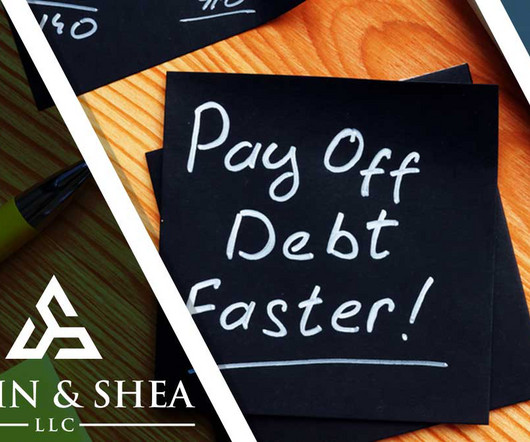What Happens to My Personal Loan After Bankruptcy?
Sawin & Shea
OCTOBER 26, 2022
A variety of factors determine whether or not you’ll be able to discharge all of certain personal loans, including whether the loan is secured or unsecured and whether you file via Chapter 7 or Chapter 13 bankruptcy. Unsecured loans are loans that don’t have collateral. Credit card debts.














Let's personalize your content